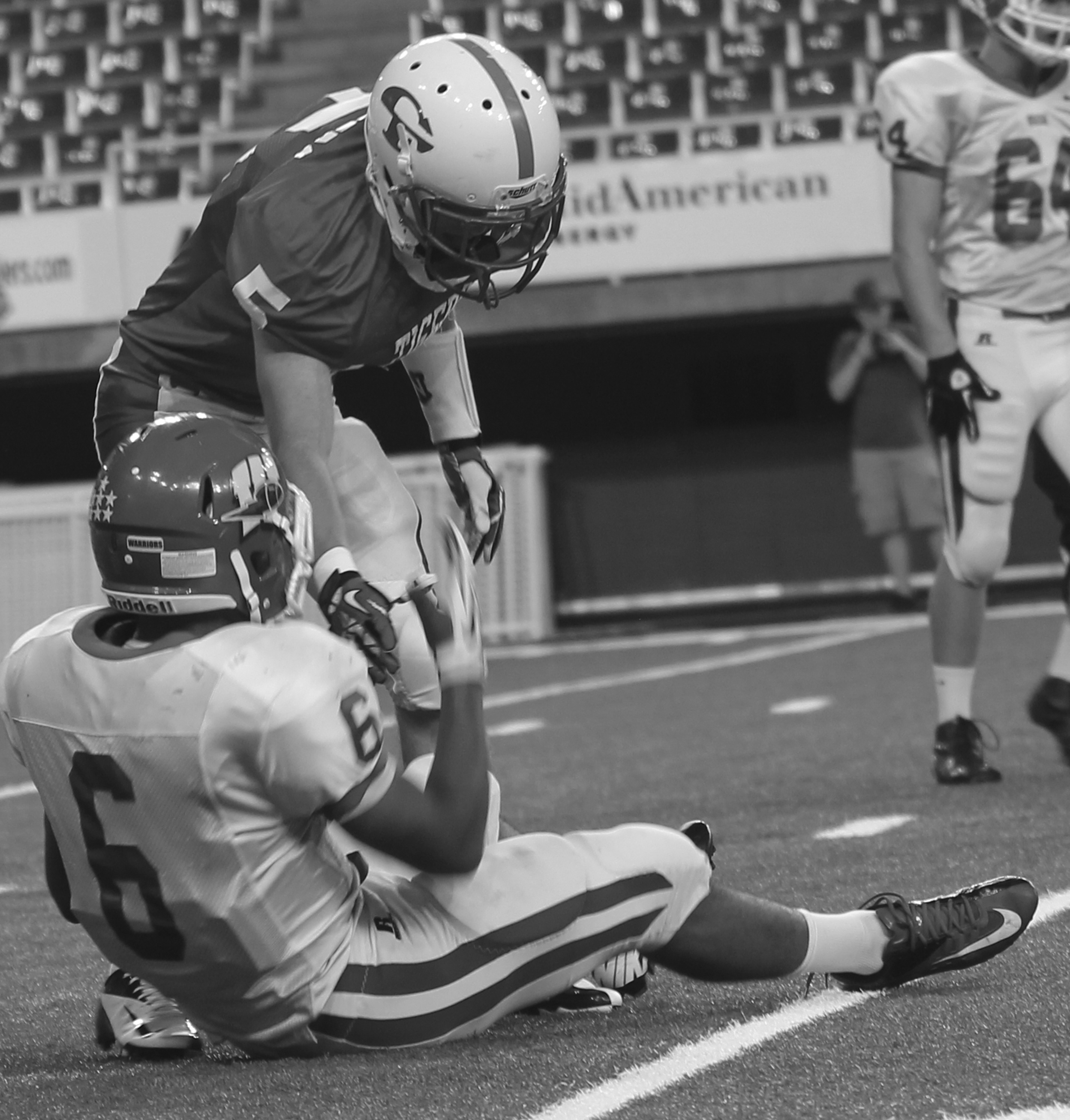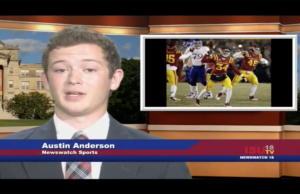Role Play: Should Athletes be Role Models?

“I am not a role model. I am not paid to be a role model. I am paid to wreak havoc on the basketball courts. Parents should be role models. Just because I dunk a basketball, doesn’t mean I should raise your kids.” These are the words that were famously uttered by professional basketball hall of famer Charles Barkley in a 1993 Nike ad.
Barkley, who has had many controversial outbursts and run ins with the law, reiterated his feelings “A million guys can dunk a basketball in jail; should they be role models?”
Kids all over the world grow up wanting to be identical to their favorite athletes. They buy their jerseys, clothing and shoes as they replicate their idols and hope to gain the athletic ability of these marketable athletes.
The religiously outspoken Barkley has admitted to some not so exemplary behaviors such as losing $10 million gambling as well as been ridiculed for his public comments. Some view the Nike ad as an excuse for Barkley to not grow up and continue his bad habits.
He is not the only athlete struggling in the spotlight. Former New England Patriots tight end Aaron Hernandez is currently being held without bail and awaits the conclusion of three murders that he allegedly committed. Coming out of the University of Florida, Hernandez was an All-American and John Mackey Award recipient as the top collegiate tight end in the country. Based on talent alone, Hernandez had the profile of a first or second round pick, but his failed drug tests and reputation as a troublemaker caused him to fall to the fourth round.
Cyclist Lance Armstrong was the most polarizing athlete in his sport and possibly even the United States. He won seven Tour de France titles before he was stripped of his accomplishments for doping. He was an inspiration to millions across the country. After nearly dying from cancer, he overcame the disease and went on to raise millions for cancer research and continue his dominance in cycling. He repeatedly denied using performance enhancing drugs and authored multiple books about his cancer battle and return to his bike. In those books he again denied ever doping. He had the world at his disposal, many accolades and diehard fans, all fueled by cheating and lies.
Of course the media is far more likely to show the negativity and scandalous nature of professional athletes instead of the charitable.
Derek Jeter was recently named the 11th greatest leader in the entire world by Fortune Magazine ahead of numerous world leaders and CEO’s. He was ranked just two spots lower than the Dalai Lama and was the second youngest on the list of 50. He has done considerable charity work and has two charities that he annually raises millions per year for. Jeter has never publicly spoken negatively about anyone or anything. He has never gotten into legal trouble with the law or the MLB itself. He plays the game hard day in and day out and has never tested positively for anything in his career. He plays for one of the most hated franchises in sports and still is able to maintain the utmost respect.
It is easy for the world to see the negativity in athletes and to refute their credibility as role models with many justifiable cases of athletes gone wrong, yet there are still good people in the sports world, which brings up the question: Should professional athletes be role models?
“I think so. I think that should be the goal of every athlete. They aren’t really paid to be a role model, but they’re in a high position, so they should be viewed as one,” said CFHS starting quarterback Trey Hansen.
CFHS basketball team captain Drew Marchesani agreed with Hansen. “They don’t have a choice. They have to realize that being a professional athlete will have consequences such as losing your private life. It definitely comes with it’s advantages. You are making a lot of money per year and have a lot of nice things that a lot of people don’t have.”
One out of every 16,000 high school athletes goes on to play professional sports, and 98 out of 100 high school athletes will never even step foot on a collegiate playing field, let alone be a part of the 0.0000625% of high school athletes to go pro.
“Professional athletes need to realize, in order to become great, you need to make sacrifices,” Marchesani added.
Most kid sports fans love and admire their favorite athletes. Sometimes those favorite athletes aren’t getting paid millions of dollars or getting nationally televised games. Sometimes role models come from Friday nights at the local football field.
That forces another question to arise: Should high school athletes be role models?
“Junior high and especially elementary students really look up to high school athletes. Some of our high school athletes don’t realize this, but younger students are observing the actions and character of our high school athletes,” CFHS Athletic Director Gary Koenen said.
After transferring from Becker, Minn., Hansen was the starting quarterback as a junior. Adjusting to a new state, school and system took some getting used to, but as the quarterback, Hansen was forced into a leadership role and embraced the possibility of being a role model. “I like to think of myself as a role model to the kids that watch, but going about my daily life, I just try to be myself.”
Just like professionals, high school athletes are viewed in a different light than regular students. If some students fail a class or get in trouble, they have nothing to get taken from them. If student-athletes get into trouble, they lose playing time, their reputation and even their scholarships to get into college. “Athletes are most definitely held to a higher standard than other students. Since they are representing their community and school, there are higher expectations for students who participate in extracurricular activities. It is a privilege to participate in those activities — not a right,” Koenen said.
It is clear that being an athlete, at any level, is a very fortunate gift, but there are sacrifices that need to be made to achieve success. Athletes have to stay out of trouble or risk substantial punishment. Marchesani knows in high school it is often a case of being guilty by association or being in the wrong place at the wrong time. “If you’re an athlete making bad choices, people are going to know that. Your image is on the line that you were at a party drinking and smoking. That’s not a person I want to be like, so I stop looking up to them. I just want to be a person that, on and off the court, is respectable and recognized as a good person.”
Talent and even hard work can only take people so far in life. As much as Charles Barkley or any other athlete may be opposed, every move that is made is seen by someone. That person is either affected positively or negatively, and so regardless of any other circumstances, athletes at any level, are role models. Sacrifices have to be made to achieve certain levels of success, both on the playing surface and off, and it’s about time athletes start realizing that.








You must be logged in to post a comment Login